Related Research Articles

Kabul University is one of the major and oldest institutions of higher education in Afghanistan. It is in the 3rd District of the capital Kabul, near the Ministry of Higher Education. It was founded in 1931 by King Mohammed Nadir Shah, whose prime minister at the time was his younger brother, Sardar Mohammad Hashim Khan.

The National Museum of Afghanistan is a two-story building located across the street from the Darul Aman Palace in the Darulaman area of Kabul, Afghanistan. It was once considered to be one of the world's finest museums. There have been reports about expanding the museum or building a new larger one.
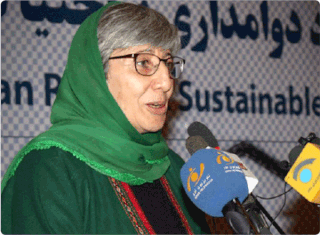
Sima Samar is a Hazara woman and human rights advocate, activist and medical doctor within national and international forums, who served as Minister of Women's Affairs of Afghanistan from December 2001 to 2003. She is the former Chairperson of the Afghan Independent Human Rights Commission (AIHRC) and, from 2005 to 2009, United Nations Special Rapporteur on the situation of human rights in Sudan. In 2012, she was awarded the Right Livelihood Award for "her longstanding and courageous dedication to human rights, especially the rights of women, in one of the most complex and dangerous regions in the world."

Suhaila Siddiq, often referred to as 'General Suhaila', was an Afghan politician. She served as the Minister of Public Health from December 2001 to 2004. Prior to that, she worked as the Surgeon General in the military of Afghanistan. As a government minister, she was given the title Honorable before her name. Siddiq was one of the few female government leaders in Afghanistan, and is the only woman in the history of Afghanistan to have held the title of lieutenant general. General Seddiq had worked for the government of Afghanistan since the reign of Mohammed Zahir Shah, and was additionally a paratrooper of the Afghan Commando Forces.

Women's rights in Afghanistan have varied greatly depending on the time period as well as the regime in power. After King Amanullah Khan's attempts to modernize the country in the 1920s, women officially gained equality under the 1964 Constitution. However, these rights were taken away in the 1990s through different temporary rulers such as the mujahideen and the Taliban during the Afghan civil war. During the first Taliban regime (1996–2001), women had very little to no freedom, specifically in terms of civil liberties. When the Taliban was overthrown by the United States following the September 11 attacks, women's rights gradually improved under the presidential Islamic Republic of Afghanistan. Women were de jure equal to men under the 2004 Constitution.
Masuma Esmati-Wardak was an Afghan writer and politician. She was jointly one of the first women to serve in the Afghan parliament and served as Minister of Education.
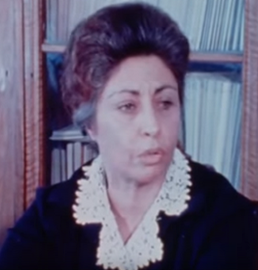
Anahita Ratebzad was an Afghan socialist and Marxist-Leninist politician and a member of the People's Democratic Party of Afghanistan (PDPA) and vice-president of the Revolutionary Council under the leadership of Babrak Karmal. One of the first women elected to the Afghan parliament, Ratebzad was deputy head of state from 1980 to 1986.
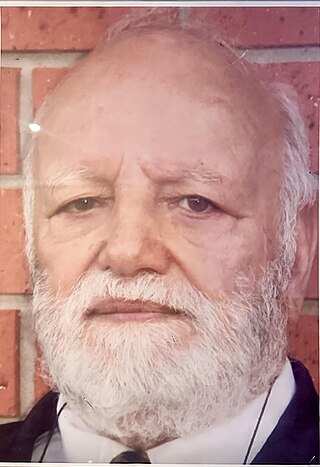
Abdul Rasul Amin was an Afghan politician, lexicographer, academic, writer, and former education minister.

Nancy Hatch Dupree was an American historian whose work primarily focused on the history of modern Afghanistan. She was the director of the Afghanistan Center at Kabul University and author of five books that she compiled while studying the history of Afghanistan from 1962 until the late 1970s, writing about tourism and history of Bamyan, Kabul, Kandahar, Herat, Mazar-i-Sharif and so on. She was fondly called the "grandmother of Afghanistan", having spent much of her life there or with Afghans abroad.
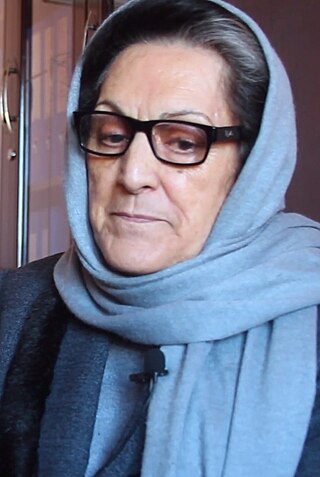
Shafiqa Habibi is a journalist, television anchor, activist and politician from Afghanistan. She is known for her work to support women journalists, and for her 2004 candidacy for Vice President of Afghanistan as the running mate of Abdul Rashid Dostum.
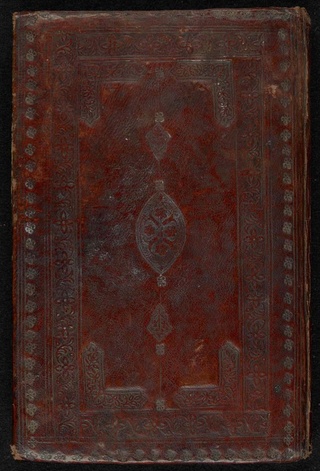
Ayesha Durrani, also known as Aisha-i-Durani and Aisha Durrani (18th-century) was an Afghan poet, one of the wives of Timur Shah Durrani of the Durrani Empire. A number of her poems were compiled into a manuscript in 1882, and Durrani is credited with founding the first school for girls in Afghanistan.
Kubra Noorzai (1932–1986) was an Afghan politician. She was the first woman to become a government minister in the country, serving as Minister of Public Health between 1965 and 1969.
Anjuman-i Himayat-i-Niswan was a women's organization in Afghanistan, founded in 1928. It was the first women's organization in Afghanistan.

Princess Bilqis Begum is a former Afghan princess.
Alia Hafeez was an Afghan educator. She belonged to the generation of pioneer women who attained public positions in Afghan society after the reforms of Mohammed Daoud Khan.
Nafeesa Shayeq was an Afghan feminist. She belonged to the generation of pioneer women who attained public positions in Afghan society after the reforms of Mohammed Daoud Khan.
Halima Rafat was an Afghan nurse and women's rights activist. She was one of the first two nurses of her country, and belonged to the pioneer generation of professional women in Afghanistan.
Mirmon Halima also known as Babo Jan or Bobo Jan, was an Afghan royal consort. She was married to Abdur Rahman Khan.
Zarghona Anna, also written as Zarghona Anaa, was an Afghan poet. She was the mother of Ahmad Shah Durrani. Her mausoleum is located in the Kohak village of Arghandab District in southern Kandahar Province of Afghanistan, a short distance to the west of Baba Wali Kandhari's historical site.
Saleha Farooq Etemadi was an Afghan politician. She served as Minister of Social Security in 1990-1992.
References
- ↑ Rahimi Fahima. ( 1977, with 1~ update of 1985 by Nancy Hatch Dupree), Women in Afghanistan /Frauen in Afghanistan, Kabul
- ↑ The first five was Kubra Noorzai in 1965, Shafiqa Ziaie in 1971, Anahita Ratebzad in 1976, Masuma Esmati-Wardak in 1990 and Saleha Farooq Etemadi in 1990.
- ↑ Khan, Sarfraz, and Samina, Politics of Policy and Legislation Affecting Women in Afghanistan: One Step Forward Two Steps Back (2013). Central Asia, No.73. Winter 2013, pp. 1-24, Available at SSRN: https://ssrn.com/abstract=2765247
- M. Saed: Women in Afghanistan history
- Rahimi Fahima. ( 1977, with 1~ update of 1985 by Nancy Hatch Dupree), Women in Afghanistan /Frauen in Afghanistan, Kabul
- Hafizullah Emadi, Repression, Resistance, and Women in Afghanistan